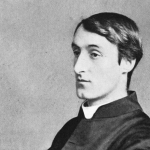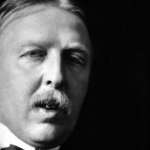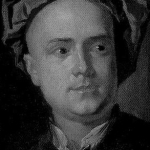Jam non consilio bonus, sed more eo perductus, ut non tantum recte facere possim, sed nisi recte facere non possim"
"I am no longer good through deliberate intent, but by long habit have reached a point where I am not only able to do right, but am unable to do anything but what is right."
(Seneca, Letters 120.10)
"I am no longer good through deliberate intent, but by long habit have reached a point where I am not only able to do right, but am unable to do anything but what is right."
(Seneca, Letters 120.10)
O Duty! if that name thou love
Who art a light to guide, a rod
To check the erring, and reprove;
Thou, who art victory and law
When empty terrors overawe;
From vain temptations dost set free;
And calm'st the weary strife of frail humanity!
There are who ask not if thine eye
Be on them; who, in love and truth,
Where no misgiving is, rely
Upon the genial sense of youth:
Glad Hearts! without reproach or blot;
Who do thy work, and know it not:
Oh! if through confidence misplaced
They fail, thy saving arms, dread power! around them cast.
Serene will be our days and bright,
When love is an unerring light,
And joy its own security.
And they a blissful course may hold
Even now, who, not unwisely bold,
Live in the spirit of this creed;
Yet seek thy firm support, according to their need.
I, loving freedom, and untried;
No sport of every random gust,
Yet being to myself a guide,
Too blindly have reposed my trust:
And oft, when in my heart was heard
Thy timely mandate, I deferred
The task, in smoother walks to stray;
But thee I now would serve more strictly, if I may.
Through no disturbance of my soul,
Or strong compunction in me wrought,
I supplicate for thy control;
But in the quietness of thought:
Me this unchartered freedom tires;
I feel the weight of chance-desires:
My hopes no more must change their name,
I long for a repose that ever is the same.
Stern Lawgiver! yet thou dost wear
The Godhead's most benignant grace;
Nor know we anything so fair
As is the smile upon thy face:
Flowers laugh before thee on their beds
And fragrance in thy footing treads;
Thou dost preserve the stars from wrong;
And the most ancient heavens, through Thee, are fresh and strong.
To humbler functions, awful Power!
I call thee: I myself commend
Unto thy guidance from this hour;
Oh, let my weakness have an end!
Give unto me, made lowly wise,
The spirit of self-sacrifice;
The confidence of reason give;
And in the light of truth thy Bondman let me live!

















Comment form: